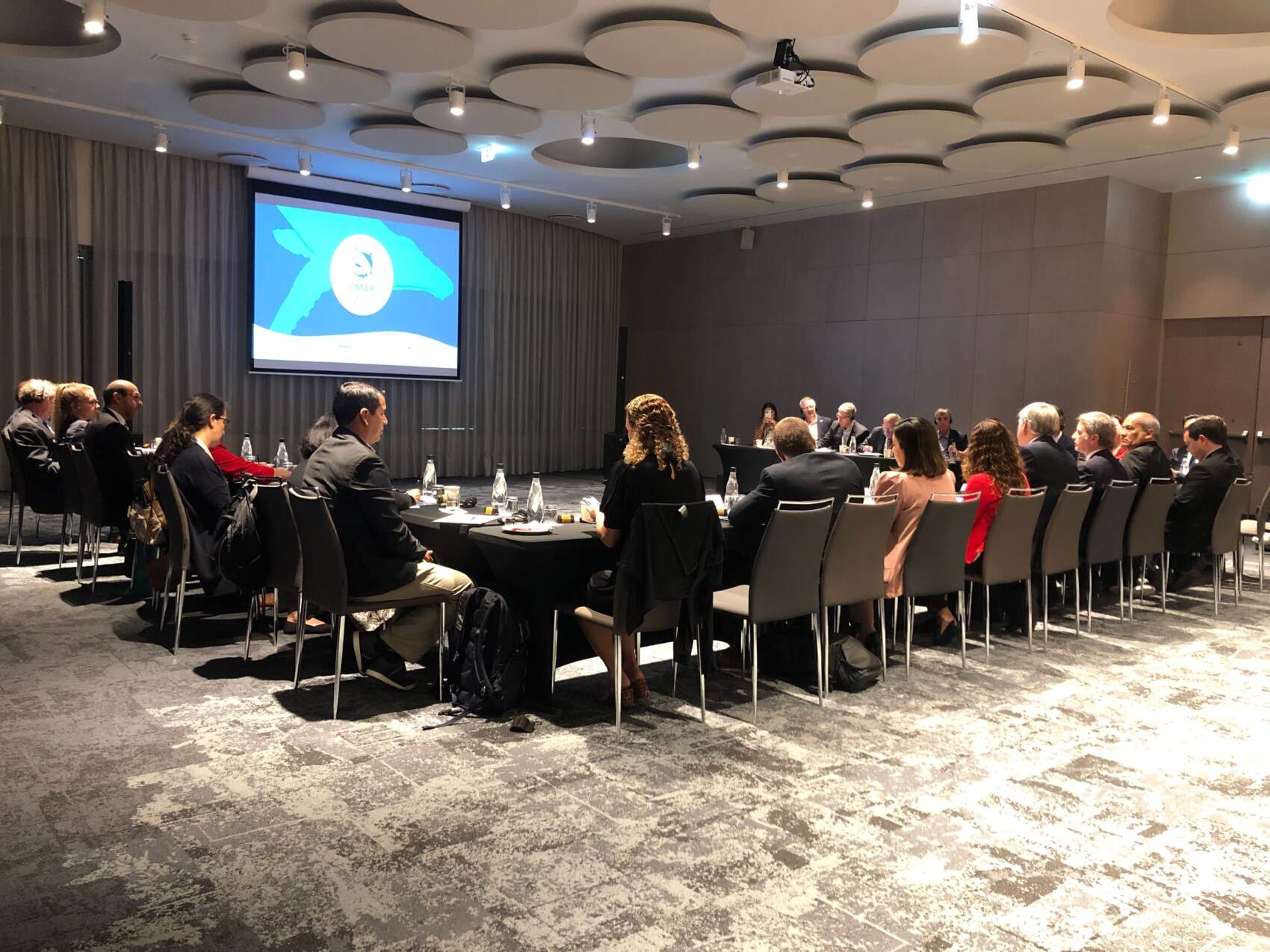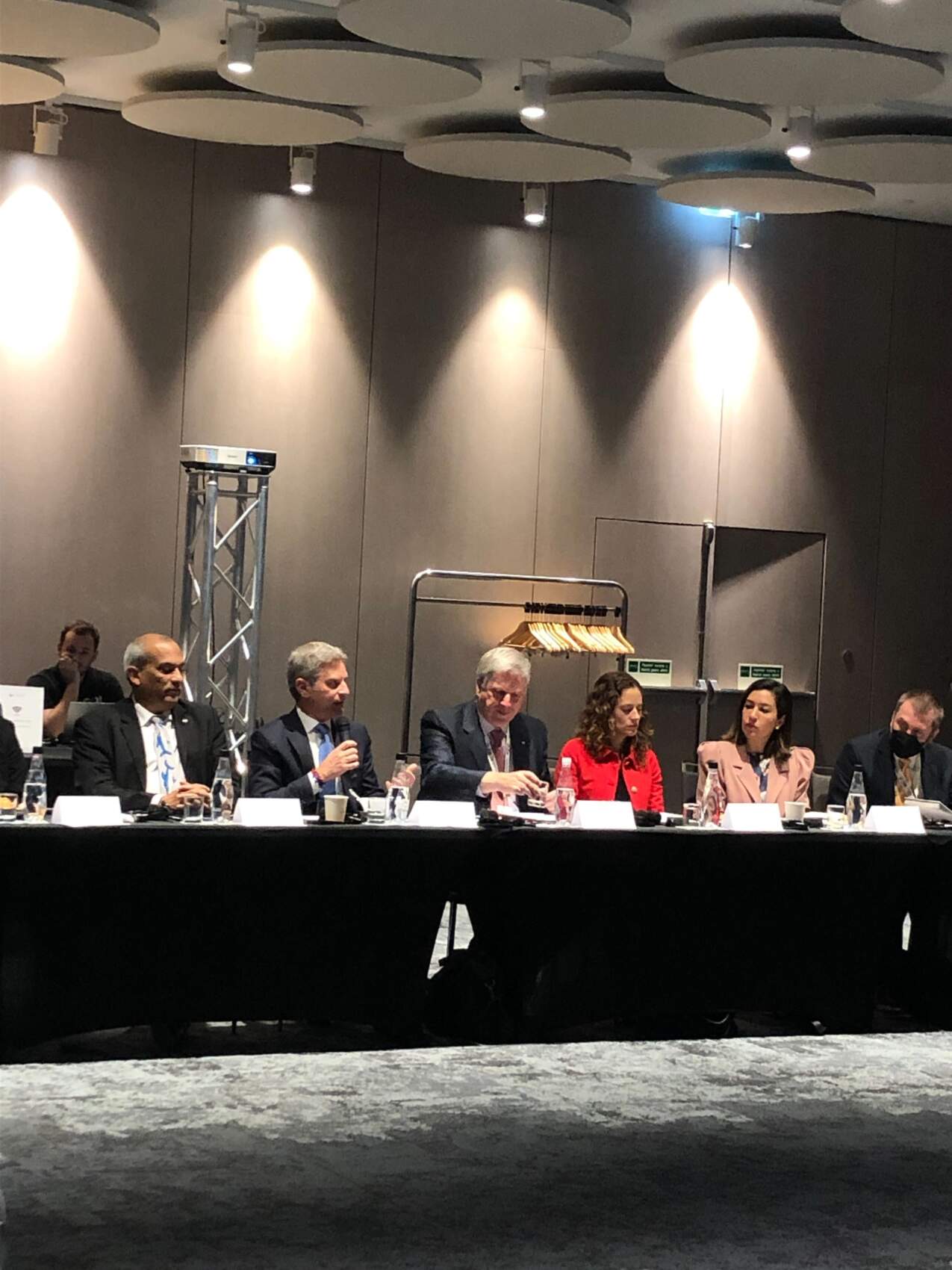The Connect to Protect Eastern Tropical Pacific Coalition, which includes Bezos Earth Fund, Blue Nature Alliance, Development Bank of Latin America, Enduring Earth, German Ministry for Economic Development and Cooperation through KfW, Gordon and Betty Moore Foundation, Islas Secas Foundation, Minderoo Foundation, Pew Bertarelli Ocean Legacy, Re:wild, Shark Conservation Fund, UK government, U.S. Department of State, and Wyss Foundation, will work alongside elected leaders, communities, Indigenous groups, government officials, and scientists to strengthen cooperative governance, design and implement marine protected areas and a biosphere reserve, and secure long-term sustainable financing.
The Bezos Earth Fund today announced its first investments dedicated explicitly to marine protection at the United Nations Ocean Conference, totaling $50 million in new grants. These grants further its commitment to the 30×30 initiative to protect 30% of the planet’s land and sea by 2030. Currently, only 7.93% of the ocean is zoned as marine protected areas.

The Bezos Earth Fund will provide grants totaling $30 million to support organizations working in Colombia, Costa Rica, Ecuador, and Panama in strengthening the Eastern Tropical Marine Corridor. By creating a network of marine protected areas covering more than 500,000-square-kilometers (193,000-square-miles) and a transboundary biosphere reserve, the four countries’ biological hotspots will be connected and protected. These grants are provided alongside those of other members of the Connect to Protect Eastern Tropical Pacific Coalition. The coalition will work alongside governments, local communities, non-government organizations, and scientists to help establish a regional governance structure, design, and implement marine protected areas and the biosphere reserve, and secure long-term sustainable financing.
The Green Climate Fund will also provide financial support and the coalition invites other governments, multilateral agencies, civil society organizations and partners to join us in this effort. And, the UK has already committed to supporting the countries and CMAR. This includes supporting the region with technical assistance through the UK’s Blue Planet Fund to identify actions to reinforce their monitoring, management, and enforcement of its marine protected areas.

The Ministerial Breakfast was organised by Island Innovation
In November 2021, the presidents of Colombia, Costa Rica, Ecuador, and Panama also signed a joint memorandum of understanding to create the transboundary biosphere reserve that will connect and protect the marine environments of the Cocos, Coiba, Galápagos, Gorgona, and Malpelo Islands. Safeguarding the pathways between the region’s linked biological hot spots will protect the tuna, sharks, rays, whales, birds, sea turtles and many other creatures that rely on these corridors to feed, gather, reproduce, and give birth. In addition to the benefits to nature, the reserve will also support food security, and boost local economies. The reserve will help safeguard the Eastern Tropical Marine Corridor (CMAR), which was formally established by the four countries nearly 20 years ago as part of a joint declaration that created a voluntary regional inter-governmental cooperation mechanism for the conservation and sustainable use of marine biodiversity across the waters of member nations. The agreement has successfully encouraged communication and collaboration on common regional threats such as overfishing.

The Broad Coalition pledged its support to preserve and protect the marine environment
“Colombia, Costa Rica, Ecuador, and Panama have been showing the world what ocean conservation leadership looks like. No one government or entity can protect this seascape that people everywhere, in one way or another, depend on for their well-being,” said Dr. M. Sanjayan, CEO of Conservation International, a core partner of the Blue Nature Alliance. “Conservation International, together with the Blue Nature Alliance, is excited to be part of this incredibly important coalition. This is exactly how we save the nature humanity depends on: through collective global action from countries, communities, and the public and philanthropic sectors.”

Island Innovation is a social enterprise and digital media company at the intersection of sustainable development and communications, offering specialised services across various sectors. We bring together the private sector, government, utilities, NGOs and universities to advance innovation for sustainability and prosperity in islands worldwide.















